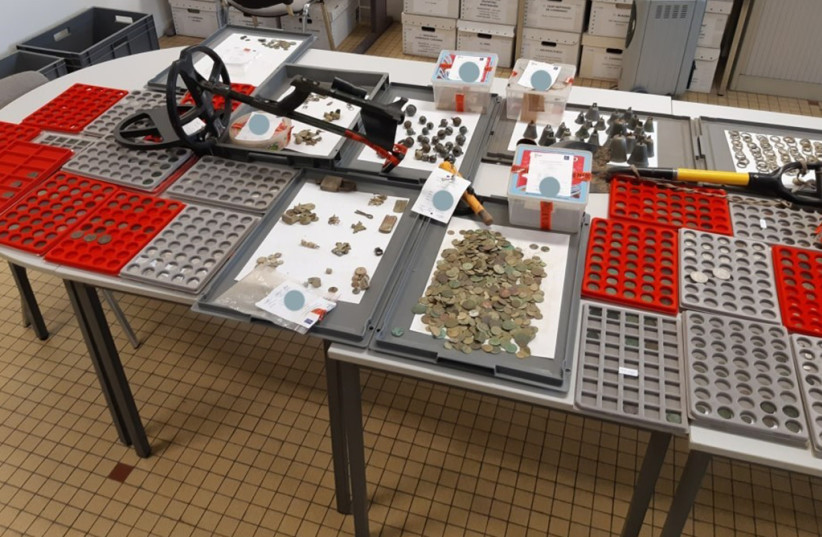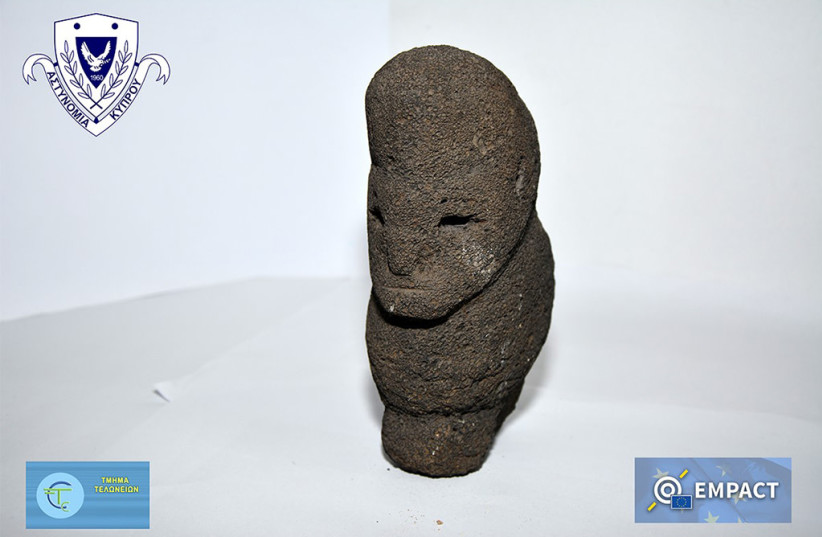In a sweeping global police operation targeting illegal trafficking in cultural objects earlier this month, INTERPOL arrested 52 people and seized 9,408 cultural artifacts from around the world including archaeological antiquities, furniture, coins, paintings, musical instruments and statuettes.
The movie-worthy operation, dubbed Pandora VI, was led by the Spanish Guardia Civil and involved cooperation among 28 countries from across European, ranging from the United Kingdom, Ireland, and Latvia through France, Germany and Greece to Poland, Serbia, Cyprus, and Malta. The United States and Kosovo, which is not a member of INTERPOL, also took part.
Among the stolen artifacts rescued from the illegal antiquities market was a treasure of 91 gold coins from the Roman Empire worth an estimated $548,772 on the black market, seized by the Spanish National Police.
The police began their investigation after identifying the coins in a well-known auction house in Madrid. Investigators were fortuitously later able to identify the Spanish archaeological site from where the coins were looted, which is not always the case.
When an antiquity is taken out of its archaeological setting by antiquity thieves and trafficked illegally, historical context is lost.

The Pandora VI operation was coordinated at the international level by Europol, INTERPOL and the World Customs Organization (WCO), according to an INTERPOL statement.
Even as travel and movement restrictions continued throughout Europe last year into the second year of the COVID-19 pandemic, law enforcement authorities monitored and ran checks and controls in airports and at bordering crossing points, in auction houses, museums and private homes to monitor the movement of stolen cultural artifacts.
The operational phase of Pandora VI took place from June 1-September 30, 2021, and is part of the annual Operation Pandora which was first launched in 2016 and has led to 407 arrests and a recovery of 147,050 cultural objects to date.

Operational Coordination Units working secretly around the clock established in conjunction with Europol and the WCO and INTERPOL shared information, sent alerts and warnings, and performed cross-checks in international and national databases, according to the statement.
The National Police Force of the Netherlands organized a cyber patrol week with special focus on the monitoring of suspicious online market sales.
French Customs alone seized 4,231 archaeological objects including some 3,000 coins, as well as bells, buckles, rings and pieces of pottery which were looted from archaeological sites by a single individual using a metal detector.
Interestingly, metal detectors remain a hot commodity among looters, with seven European law enforcement authorities reporting the seizure of 90 metal detectors destined for illicit use at archaeological sites.
In a separate case, French Customs also seized three ancient statuettes dating back to the La Tolita – Tumaco pre-Columbian culture.
Officers from US Customs and Border Protection seized a shipment containing 13 pieces of ancient Mexican artifacts from the Post-Classic to the Aztec era, including one skull and 12 adzes, or chopping tools.
Romanian police recovered and returned a 13th century processional cross which had been stolen from the Evangelical Church Museum of Cisnadie in 2016. The object had been recorded in INTERPOL’s Stolen Works of Art Database and was identified via INTERPOL’s ID-Art mobile app.
Officers from the Greek Hellenic Police recovered a marble column dating back from the Roman period, alongside 13 ancient coins and three pottery vessels dating from the Hellenistic period, while the Italian Carabinieri Corps seized 79 archaeological antiquities of different types and age stemming from the Mediterranean region. These were lacking documentation certifying their lawful origin or import into the country.
In the Netherlands, the Arts and Antiquities Crime Unit of the National Police Force recovered two Kees Verweij paintings which had been reported as stolen, following checks of an online sales catalogue involving an Amsterdam auction house.
The sting operations continue, INTERPOL said in their statement, with over 170 ongoing investigations still in process.
“More seizures and arrests are anticipated as investigators around the globe continue their pursuit of those spoiling and destroying cultural heritage,” said the INTERPOL statement.
